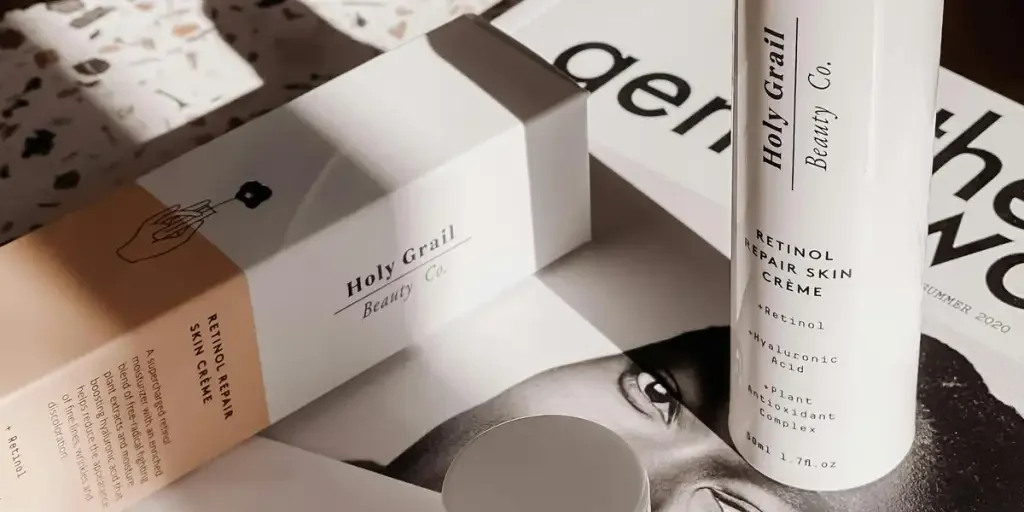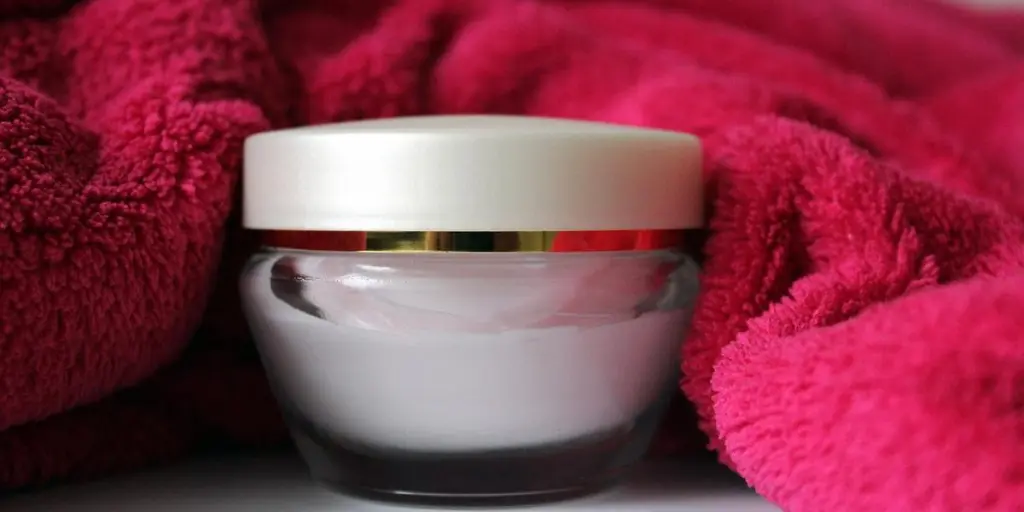In the ever-evolving landscape of skincare, acne-prone moisturizers have emerged as a pivotal category, addressing the unique needs of individuals battling acne while ensuring their skin remains hydrated and healthy. As we step into 2025, the demand for these specialized products continues to soar, driven by a combination of heightened skin health awareness and innovative product developments. This guide delves into the essentials of acne-prone moisturizers, exploring their market potential and the trends shaping their growth.
Table of Contents:
– Understanding Acne-Prone Moisturizers and Their Market Potential
– Exploring Popular Types of Acne-Prone Moisturizers
– Addressing Consumer Pain Points with Innovative Solutions
– New and Innovative Products on the Market
– Key Factors to Consider When Sourcing Acne-Prone Moisturizers
– Wrapping Up the Insights on Acne-Prone Moisturizers
Understanding Acne-Prone Moisturizers and Their Market Potential

What Makes Acne-Prone Moisturizers Essential?
Acne-prone moisturizers are specifically formulated to provide hydration without clogging pores, a critical factor for individuals with acne-prone skin. These products often contain ingredients like salicylic acid, benzoyl peroxide, and niacinamide, which help in reducing acne while maintaining the skin’s moisture balance. The importance of these moisturizers lies in their dual functionality: they combat acne and prevent the skin from becoming overly dry, which can exacerbate acne issues.
The global skincare market has seen a significant rise in the demand for acne-prone moisturizers. According to a professional report, the skincare products market is projected to grow from $160.94 billion in 2024 to $220.3 billion in 2028, at a compound annual growth rate (CAGR) of 8.2%. This growth is fueled by the increasing prevalence of skin conditions, including acne, and the rising awareness of the benefits of specialized skincare products.
Trending Social Media Hashtags and Broader Trend Topics
Social media continues to play a crucial role in shaping consumer preferences and driving product demand. In 2025, hashtags like #AcneFreeSkin, #ClearSkinJourney, and #HydrateAndHeal are trending, reflecting the growing interest in acne-prone skincare solutions. These hashtags not only highlight the popularity of acne-prone moisturizers but also underscore the broader trend of consumers seeking products that offer both treatment and hydration.
The influence of beauty influencers and dermatologists on platforms like Instagram and TikTok cannot be overstated. Their endorsements and reviews significantly impact consumer choices, making it essential for brands to engage with these influencers to boost their product visibility. Additionally, the trend towards clean and sustainable skincare is gaining momentum, with consumers increasingly opting for products that are free from harmful chemicals and packaged in eco-friendly materials.
Areas of Demand Growth and Market Potential
The market potential for acne-prone moisturizers is vast, with several key areas driving demand growth. One notable trend is the rise of personalized skincare solutions. Advances in technology, such as AI-powered skin analysis tools, enable consumers to receive tailored product recommendations based on their unique skin needs. This personalization trend is expected to drive significant growth in the acne-prone moisturizer segment.
Emerging markets, particularly in the Asia-Pacific region, present substantial growth opportunities. The region’s skincare market is expanding rapidly, driven by increasing disposable incomes and a growing middle-class population. According to a report, Asia-Pacific was the largest region in the skincare products market in 2023 and is expected to be the fastest-growing region in the forecast period. The cultural emphasis on skincare in countries like South Korea and Japan further bolsters the demand for specialized products like acne-prone moisturizers.
Moreover, the integration of skincare technology apps is revolutionizing the way consumers approach their skincare routines. These apps offer features like virtual consultations, product recommendations, and routine tracking, enhancing the overall consumer experience and driving the adoption of targeted skincare products.
In conclusion, the market for acne-prone moisturizers is poised for robust growth in 2025, driven by a combination of technological advancements, social media influence, and rising consumer awareness. As brands continue to innovate and cater to the evolving needs of consumers, the demand for these specialized products is set to reach new heights.
Exploring Popular Types of Acne-Prone Moisturizers

Gel-Based Moisturizers: Lightweight and Effective
Gel-based moisturizers have gained significant popularity among consumers with acne-prone skin due to their lightweight and non-greasy texture. These moisturizers are typically water-based, which allows them to be quickly absorbed by the skin without leaving a heavy residue. This is particularly beneficial for individuals with oily skin, as it helps to maintain hydration without exacerbating oiliness. A notable example is Glo Skin Beauty’s BHA Clarifying Gel Moisturizer, which combines vegan lactic acid and salicylic acid to balance oil production and eliminate shine without stripping the skin of essential moisture. This product is the result of extensive microbiome research, ensuring it supports a clear and balanced complexion.
The formulation of gel-based moisturizers often includes ingredients like hyaluronic acid, which provides deep hydration, and niacinamide, known for its anti-inflammatory properties. These ingredients work synergistically to soothe irritated skin and reduce the appearance of redness and blemishes. Additionally, the inclusion of botanical extracts can further enhance the calming effects, making these moisturizers suitable for sensitive skin types. The rapid absorption and non-comedogenic nature of gel-based moisturizers make them an ideal choice for daily use, particularly in humid climates where heavier creams might feel uncomfortable.
Cream-Based Moisturizers: Deep Hydration for Acne-Prone Skin
Cream-based moisturizers are designed to provide intense hydration, making them suitable for individuals with dry or combination skin types. These moisturizers often contain a blend of emollients and occlusives that help to lock in moisture and strengthen the skin barrier. For instance, Untoxicated’s Moisture Boost Hydrating Cream is a hypoallergenic and non-comedogenic option that delivers deep nourishment without harsh chemicals. It is infused with ceramides, hyaluronic acid, arginine, and glycolipids, specifically formulated to cater to sensitive skin.
The rich texture of cream-based moisturizers allows them to deliver long-lasting hydration, which is essential for maintaining skin health and preventing dryness-induced breakouts. Ingredients such as ceramides play a crucial role in reinforcing the skin barrier, preventing transepidermal water loss, and protecting against environmental aggressors. Additionally, the inclusion of antioxidants like vitamin E can help to neutralize free radicals and reduce inflammation, further benefiting acne-prone skin. These moisturizers are particularly effective when used as part of a nighttime skincare routine, allowing the skin to repair and regenerate while the user sleeps.
Oil-Free Moisturizers: Balancing Moisture Without Clogging Pores
Oil-free moisturizers are specifically formulated to provide hydration without the use of oils that can potentially clog pores and lead to breakouts. These products are ideal for individuals with oily or acne-prone skin who need to maintain moisture balance without adding excess oil. Neutrogena’s Fragrance-Free Daily Facial Moisturizer is an excellent example, featuring a multivitamin complex that supports the skin’s barrier without clogging pores. This lightweight moisturizer conditions and protects the skin against daily environmental aggressors, making it suitable for sensitive and reactive skin.
The formulation of oil-free moisturizers often includes humectants like glycerin and hyaluronic acid, which attract and retain moisture in the skin. Additionally, ingredients such as salicylic acid can help to exfoliate the skin and prevent pore blockages, while niacinamide can reduce inflammation and improve skin texture. These moisturizers are designed to be non-comedogenic, ensuring they do not contribute to the formation of acne. The lightweight and fast-absorbing nature of oil-free moisturizers makes them ideal for use under makeup, providing a smooth and hydrated base without a greasy finish.
Addressing Consumer Pain Points with Innovative Solutions

Tackling Oily Skin and Breakouts
Oily skin and breakouts are common concerns among individuals with acne-prone skin, and addressing these issues requires targeted solutions. Products that regulate sebum production and provide gentle exfoliation can be highly effective. For example, the CeraVe Acne Control Cleanser is formulated with 2% salicylic acid to clear acne, reduce blackheads, and improve the appearance of pores. This dermatologist-developed gel-to-foam face wash also includes hectorite clay to absorb excess oil and niacinamide to soothe inflammation.
Innovative formulations that combine multiple active ingredients can offer comprehensive care for oily and acne-prone skin. The use of ingredients like zinc PCA, which regulates sebum production, and niacinamide, which reduces inflammation, can help to balance the skin and prevent breakouts. Additionally, incorporating lightweight, non-comedogenic moisturizers that provide hydration without clogging pores can further support skin health and reduce the likelihood of acne.
Sensitivity and Irritation: Finding the Right Ingredients
Sensitive and irritated skin requires gentle and soothing formulations that do not exacerbate existing issues. Products that are free from common allergens and irritants, such as parabens, phthalates, and sulfates, are essential for individuals with sensitive skin. Untoxicated’s Moisture Boost Hydrating Cream, for instance, is free from 128 commonly used allergens and is specifically formulated for sensitive skin. It is also recognized by the National Eczema Association, making it a safe choice for those with eczema-prone skin.
Ingredients like ceramides, hyaluronic acid, and botanical extracts can provide deep hydration and support the skin barrier, reducing sensitivity and irritation. Additionally, the inclusion of anti-inflammatory ingredients such as niacinamide and aloe vera can help to calm the skin and reduce redness. Products that are dermatologist-tested and hypoallergenic are particularly beneficial for sensitive skin, ensuring they provide effective care without causing adverse reactions.
Long-Term Benefits vs. Immediate Results
Balancing long-term skin health with the desire for immediate results is a common challenge for consumers. Products that offer both instant and lasting benefits can address this need effectively. For example, Elizabeth Arden’s PREVAGE Multi-Restorative Soft Cream provides immediate hydration and improvements in skin texture while supporting long-term collagen health. This moisturizer features advanced ingredients like rice peptides, carnosine, and idebenone, which protect against collagen damage and enhance skin firmness over time.
Consumers often seek products that deliver visible improvements quickly while also contributing to long-term skin health. Combining fast-acting ingredients like hyaluronic acid, which provides immediate hydration, with long-term actives like peptides and antioxidants can offer a balanced approach. This ensures that users experience both instant gratification and sustained benefits, making the products more appealing and effective.
New and Innovative Products on the Market

Breakthrough Ingredients in Acne-Prone Moisturizers
The skincare industry continues to innovate with the introduction of breakthrough ingredients that offer enhanced benefits for acne-prone skin. One such ingredient is mevalonic acid, featured in Personal Day’s Dive Deep Mevalonic Moisturizer. This patented ingredient, exclusive to the brand for the next two years, provides unique benefits for acne-prone skin by supporting skin barrier health and reducing inflammation. The inclusion of other active ingredients like azelaic acid and niacinamide further enhances the product’s efficacy.
Another innovative ingredient is bakuchiol, a plant-based alternative to retinol, which is featured in Neutrogena’s Collagen Bank Moisturizer. Bakuchiol offers similar anti-aging benefits to retinol without the associated irritation, making it suitable for sensitive and acne-prone skin. The use of micro-peptide technology in this product ensures deeper penetration and enhanced efficacy, addressing both pre-aging concerns and acne.
Emerging Brands Making Waves
Several emerging brands are making significant strides in the acne-prone skincare market with their innovative products and unique formulations. Bubble Skincare, for example, has launched a range of products specifically targeting different types of acne. Their Fade Away and Knock Out treatments use benzoyl peroxide and salicylic acid, respectively, to address various acne concerns. The brand’s focus on providing tailored solutions for different acne flare-ups has resonated with consumers, particularly Gen Z.
Another notable brand is Peace Out, which recently introduced its Acne-Gel Cleanser. This product combines salicylic acid, maltobionic acid, ceramides, and vitamin E to soothe irritated skin, strengthen the skin barrier, and reduce breakouts. The brand’s commitment to creating effective and gentle solutions for acne-prone skin has garnered positive consumer feedback and established its presence in the market.
Consumer Feedback and Success Stories
Consumer feedback and success stories play a crucial role in the skincare industry, influencing purchasing decisions and brand loyalty. Products that receive positive reviews for their efficacy and gentle formulations often see increased demand. For instance, Differin’s Acne-Prone Skin Patches have been praised for their ability to reduce imperfections and redness after just one application. These patches, developed with dermatologists, feature a triple-action formula that flattens, soothes, and protects skin imperfections, making them a popular choice among consumers.
Similarly, La Roche-Posay’s 3 Step Acne Routine has received acclaim for its effectiveness in reducing acne by up to 60% in just 10 days. The kit includes the Effaclar Medicated Gel Cleanser, Effaclar Clarifying Solution, and Effaclar Duo Acne Spot Treatment, providing a comprehensive approach to acne care. The positive consumer feedback highlights the importance of offering products that deliver visible results and cater to specific skin concerns.
Key Factors to Consider When Sourcing Acne-Prone Moisturizers

Ingredient Transparency and Safety
When sourcing acne-prone moisturizers, ingredient transparency and safety are paramount. Business buyers should prioritize products that clearly list all ingredients and avoid those containing known irritants or allergens. Brands like Untoxicated, which are free from 128 commonly used allergens, set a high standard for ingredient safety. Ensuring that products are dermatologist-tested and hypoallergenic can further guarantee their suitability for sensitive and acne-prone skin.
Additionally, the inclusion of scientifically-backed ingredients such as salicylic acid, niacinamide, and ceramides can enhance the product’s efficacy and appeal. These ingredients are well-documented for their benefits in treating acne and supporting skin health. Business buyers should also consider the presence of innovative ingredients like mevalonic acid and bakuchiol, which offer unique benefits and can differentiate the product in a competitive market.
Brand Reputation and Consumer Trust
The reputation of the brand and the level of consumer trust it commands are critical factors in the sourcing process. Established brands like La Roche-Posay and Neutrogena have built a strong reputation for delivering effective and safe skincare solutions. Their commitment to research and development, as well as their collaborations with dermatologists, contribute to their credibility and consumer trust.
Emerging brands that have received positive consumer feedback and demonstrated a commitment to quality and innovation, such as Bubble Skincare and Peace Out, also present valuable sourcing opportunities. Business buyers should consider the brand’s history, customer reviews, and any industry accolades or certifications when evaluating potential products.
Price Point and Value for Money
Price point and value for money are essential considerations for business buyers, particularly when sourcing products for a competitive market. Products that offer a balance of affordability and high-quality ingredients are likely to attract a broader consumer base. For example, Aveeno’s Daily Moisturizing Collection provides cost-effective solutions without compromising on quality, making it an attractive option for budget-conscious consumers.
Business buyers should evaluate the cost-effectiveness of the product in relation to its ingredients, formulation, and consumer feedback. Offering products that deliver visible results and long-term benefits at a reasonable price can enhance their marketability and consumer appeal. Additionally, considering packaging innovations that align with sustainability goals, such as the use of post-consumer recycled plastic, can further enhance the product’s value proposition.
Wrapping Up the Insights on Acne-Prone Moisturizers

In conclusion, sourcing the right acne-prone moisturizers involves a careful evaluation of ingredient transparency, brand reputation, and value for money. By prioritizing products that offer innovative formulations, cater to specific skin concerns, and maintain high safety standards, business buyers can ensure they meet the needs of their target market. The continuous advancements in skincare technology and the introduction of breakthrough ingredients present exciting opportunities for delivering effective and trusted solutions for acne-prone skin.




